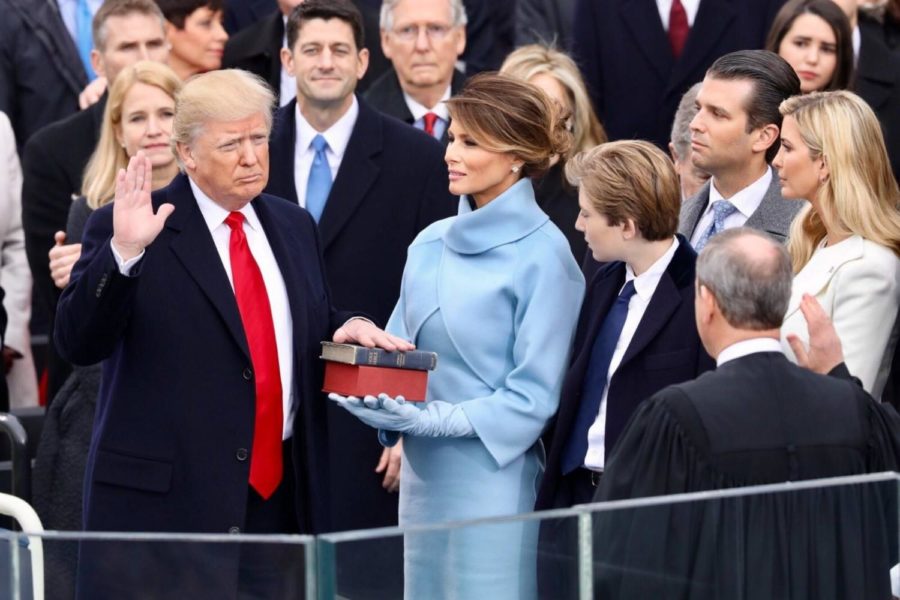Health Care and Travel Bans: Trump’s First Year in Office
Donald Trump’s policies on healthcare and national security remain controversial a year from the 2016 election.
Starting March 20, Republicans began to repeal and replace the Patient Protection and Affordable Care Act (Obamacare) with the American Health Care Act, according to The Economist.
According to The Economist and BBC, AHCA requires Americans to pay 130 percent of their healthcare cost each year they lack insurance. The Trump administration is uncertain that people earning below $40,000 can continue receiving aid for medical expenses, according to BBC.
Sen. Susan Collins, R-Me., and others voted against the Graham-Cassidy bill on Sept. 26. According to ABC News, this bill would have stopped federal funding for expanding Medicaid programs, and divide these funds based on poverty levels in the state.
“It’s commendable that [Collins] is thinking freely and that she’s not letting her party dictate her opinion,” Libertarian and student resource officer Jennifer Johnsen said.
On Oct. 12, Trump signed an executive order to attract younger, healthier people to cheaper, less comprehensive plans. According to Money CNN, healthcare prices may rise for people with pre-existing conditions under Obamacare.
Regarding his statements condemning refugees for national security, Trump issued an executive order on Jan. 27, banning citizens from Iraq, Iran, Libya, Somalia, Sudan and Yemen from entering the United States for 90 days and indefinitely for citizens from Syria, according to The Atlantic.
“We don’t want people to come into this country just for the benefits. But we should never, ever apply a ban to a certain religion,” a student’s Republican parent said. The student and their parent requested to remain anonymous.
According to The New York Times, Trump announced the second edition on Mar. 6, removing Iraq from the list of countries. The ban extended to foreign nationals for 90 days and all other refugees for 120 days from March 16.
On Sep. 24, Trump announced the third edition hours before the previous ban that took effect in late June would have expired. According to The Guardian, the ban placed heavy restrictions on citizens from the previous ban and Chad, North Korea and Venezuela, removing Somalia.
The cap for annual refugees is currently 50,000. According to NPR, the Trump Administration set the refugee cap at 45,000 for 2018.
“[Trump] is always in the spotlight of controversy not only because of the literal quick decisions being made but also because there’s lots of partisan strife already,” an Independent student said. The student requested to remain anonymous.
Your donation will support the student journalists of Portola High School. Your contribution will allow us to purchase equipment and cover our annual website hosting costs.

Jane Zou is a staff writer and resident cartoonist for the Portola Pilot. As one of the few sophomores in the production, Jane is excited to contribute...




